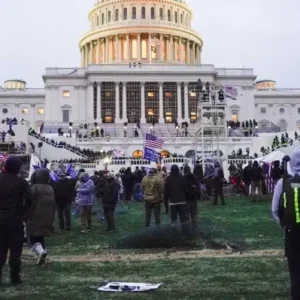Justice Department Inspector General Michael Horowitz released a highly anticipated report on Thursday detailing the FBI’s handling of confidential human sources (CHS) during the events surrounding January 6, 2021. The findings reveal critical lapses in intelligence-gathering and coordination, highlighting that more than two dozen FBI informants were present during the breach at the U.S. Capitol, raising questions about the Bureau’s preparedness and oversight.
Key Findings from the Report
Horowitz’s investigation focused on the FBI’s use of confidential informants leading up to January 6 and its ability to assess potential threats. While the FBI officially assigned only three sources to monitor events on that day, the report discovered that 26 informants were present at the Capitol.
Among these sources:
- Four entered the Capitol building.
- Thirteen entered restricted areas around the Capitol.
- Nine remained outside restricted zones and did not engage in illegal activity.
None of these sources have faced prosecution, and the report confirms that the FBI did not authorize any informant to commit or encourage unlawful actions. Moreover, there is no evidence to suggest FBI sources incited violence or played a leadership role in organizing the day’s events.
Missed Intelligence Opportunities
The Inspector General’s findings underscore significant failures in intelligence management and communication. Although individual FBI field offices gathered intelligence from their sources, including references to “storming the building” and plans to “form a perimeter” around the Capitol, this information was not adequately shared with the FBI’s Washington Field Office (WFO) or other law enforcement agencies.
Notably, the report states:
- The FBI did not canvass its field offices before January 6 to identify threats or intelligence from its confidential sources.
- Key intelligence was either delayed or failed to reach decision-makers in time to inform a proactive response.
- While similar intelligence products were created for the January 20 inauguration, no such products were prepared for the January 6 Electoral College certification.
Deputy Director Paul Abbate described the failure to canvass field offices as a “basic step that was missed.”
FBI’s Response and Posture
In the immediate aftermath of January 6, FBI officials told Congress that the Bureau had taken extraordinary measures to prepare for potential violence. However, the Inspector General’s report paints a different picture, describing the FBI’s approach as largely reactive. The lack of intelligence-sharing and coordination significantly hindered the agency’s ability to mitigate risks.
Horowitz’s findings highlight the disparity between the FBI’s pre-event posture and its claims of readiness, suggesting a need for reforms in how intelligence is gathered, analyzed, and distributed among law enforcement agencies.
Impact and Questions Raised
The revelations in Horowitz’s report have sparked new discussions about the FBI’s role and the broader scope of its involvement in January 6. While the presence of 26 confidential sources underscores the Bureau’s reliance on human intelligence, the gaps in how this intelligence was utilized raise concerns about the agency’s effectiveness.
Critics argue that the failures outlined in the report may have exacerbated the chaotic events of that day. At the same time, supporters emphasize that the FBI’s findings show no evidence of wrongdoing by its sources, reaffirming the agency’s stated commitment to lawful conduct.
Looking Forward
Horowitz’s report concludes with recommendations aimed at improving the FBI’s intelligence protocols and coordination with other agencies. Key proposals include:
- Mandating comprehensive canvassing of field offices for intelligence before major national events.
- Establishing clearer guidelines for managing and relaying intelligence from confidential sources.
- Increasing oversight and accountability within the Bureau’s intelligence operations.
The Inspector General’s findings provide a stark reminder of the challenges law enforcement agencies face in managing large-scale events and underscore the importance of proactive intelligence-sharing to prevent similar incidents in the future.
As the nation continues to grapple with the legacy of January 6, this report is likely to fuel ongoing debates about accountability, transparency, and the role of federal agencies in safeguarding democracy.
Morgan White is the Lead Writer and Editorial Director at Bengali Media, driving the creation of impactful and engaging content across the website. As the principal author and a visionary leader, Morgan has established himself as the backbone of Bengali Media, contributing extensively to its growth and reputation.
With a degree in Mass Communication from University of Ljubljana and over 6 years of experience in journalism and digital publishing, Morgan is not just a writer but a strategist. His expertise spans news, popular culture, and lifestyle topics, delivering articles that inform, entertain, and resonate with a global audience.
Under his guidance, Bengali Media has flourished, attracting millions of readers and becoming a trusted source of authentic and original content. Morgan’s leadership ensures the team consistently produces high-quality work, maintaining the website’s commitment to excellence.
